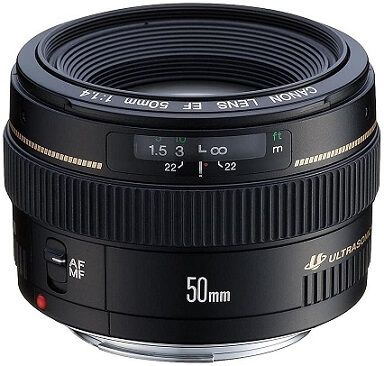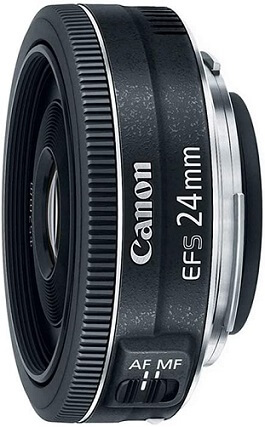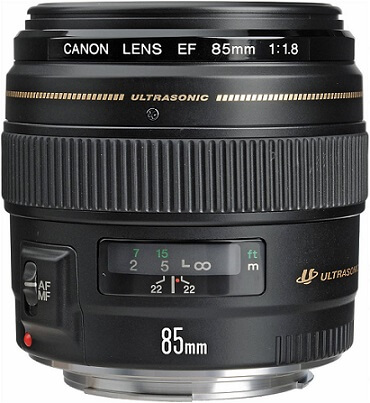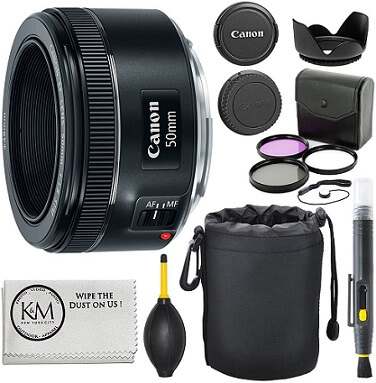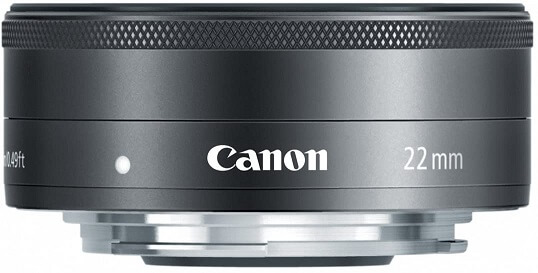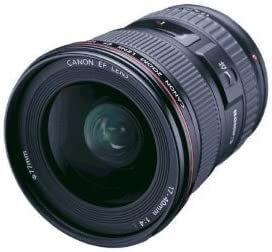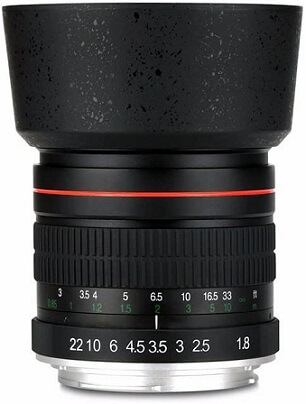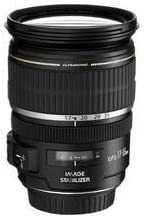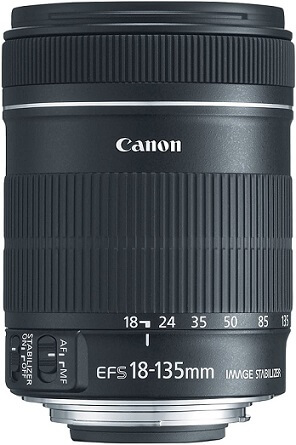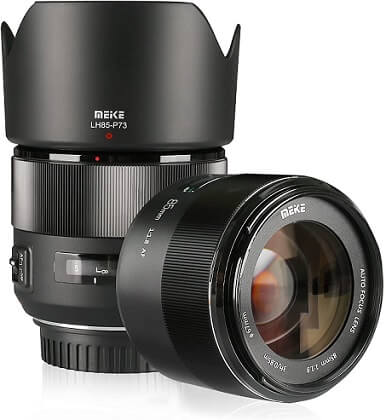“Discover Your Perfect Shot: Explore Our In-Depth Reviews of Canon’s Finest Portrait Lenses for 2024”
Portrait photography is an art form that captures the essence of a person, freezing moments in time for eternity. Whether you’re a seasoned professional or an amateur enthusiast, choosing the right lens is crucial for achieving stunning portrait shots. In this comprehensive guide, we look into various Canon lenses tailored specifically for portrait photography, ensuring you make an informed decision for your next shoot.
When it comes to capturing captivating portraits, Canon lenses are renowned for their exceptional quality and versatility. From crisp details to dreamy bokeh, Canon offers a wide range of lenses designed to elevate your portrait photography to new heights. Whether you prefer the versatility of zoom lenses or the superior image quality of prime lenses, there’s a Canon lens to suit every style and budget.
Our editorial team has meticulously reviewed and tested a myriad of Canon lenses, rigorously assessing their performance across various shooting scenarios. Through extensive field testing and meticulous analysis, we’ve curated a definitive list of the best Canon lenses for portraits, ensuring unparalleled clarity, sharpness, and artistic expression in every shot.
In Selecting Our Top Picks, We’ve Considered Three Key Factors:
- Sensor Compatibility: We assessed lenses across both full-frame and APS-C sensor cameras to ensure our recommendations cater to a wide range of Canon users. This factor is crucial as it affects the lens’s field of view and, consequently, the composition of your portraits.
- Focal Length: The focal length of a lens determines its angle of view and how much of the scene will be captured. For portrait photography, we focused on lenses that offer flattering perspectives and the ability to isolate the subject from the background, typically in the range of 50mm to 85mm for APS-C sensors and 85mm to 135mm for full-frame sensors.
- Aperture: A lens with a wide aperture allows more light to hit the sensor, which is beneficial for creating a shallow depth of field. This results in a beautifully blurred background, emphasizing the subject. Lenses with apertures of f/1.2 to f/2.8 were particularly valued for their ability to perform in low-light conditions and their prowess in creating the bokeh effect that is often desired in portrait photography.
Be sure to check out our comprehensive “Buying Guide” at the end, where we simplify complex terms for easy comprehension, aiding you in making a well-informed decision. Our thorough reviews provide insight into the practical performance of these lenses, guiding you to identify the lens that aligns perfectly with your creative goals.
Outline
Toggle- Best Canon Lenses For Portraits Table
- Best Canon Lenses For Portraits Reviews
- 1. Canon EF 50mm f/1.4 Lenses for Portraits
- 2. Canon EF-S 24mm f/2.8 Lenses for Portraits
- 3. Canon EF 85mm f/1.8 Lenses for Portraits
- 4. Canon EF 50mm f/1.8 Lenses for Portraits
- 5. Canon EF-M 22mm f/2 Lenses for Portraits
- 6. Canon EF 17-40mm f/4 Lenses for Portraits
- 7. Lightdow 85mm F1.8 Lenses for Portraits
- 8. Canon EF-S 17-55mm f/2.8 Lenses for Portraits
- 9. Canon EF-S 18-135mm f/3.5-5.6 Lenses for Portraits
- 10. Meike 85mm f1.8 Lenses for Portraits
- What To Look For The Best Canon Lens For Portrait
- Canon Lenses for Portraits – FAQs
- Conclusion
Best Canon Lenses For Portraits Table
| Best Canon Lenses for Portraits | Sensor Compatibility | Focal Length | Aperture | Warranty | Buy Now |
|---|---|---|---|---|---|
| Canon EF 50mm f/1.4 Lenses for Portraits | Canon EF full frame sensor | 50 mm | f/1.4 | 2 year long | Check On Amazon |
| Canon EF-S 24mm f/2.8 Lenses for Portraits | Canon EF-S APS-C crop sensor | 24 mm | f/2.8 | 2 year long | Check On Amazon |
| Canon EF 85mm f/1.8 Lenses for Portraits | Canon EF full frame sensor | 85 mm | f/1.8 | 2 year long | Check On Amazon |
| Canon EF 50mm Lenses for Portraits | Canon EF full frame sensor | 50 mm | f/1.8 | 2 year long | Check On Amazon |
| Canon EF-M 22mm f/2 Lenses for Portraits | Canon EF-M APS-C crop sensor | 22 mm | f/2 | 2 year long | Check On Amazon |
| Canon EF 17-40mm f/4 Lenses for Portraits | Canon EF full frame sensor | 17-40 mm | f/4 | 2 year long | Check On Amazon |
| Lightdow 85mm F1.8 Lenses for Portraits | Canon EF full frame sensor | 85 mm | f/1.8 | 1 year long | Check On Amazon |
| Canon EF-S 17-55mm f/2.8 Lenses for Portraits | Canon EF-S APS-C crop sensor | 17-55 mm | f/2.8 | 2 year long | Check On Amazon |
| Canon EF-S 18-135mm f/3.5-5.6 Lenses for Portraits | Canon EF-S APS-C crop sensor | 18-135 mm | f/3.5-5.6 | 2 year long | Check On Amazon |
| Meike 85mm f1.8 Lenses for Portraits | Canon EF full frame sensor | 85 mm | f/1.8 | 1 year long | Check On Amazon |
Also check –
Best Canon Lenses For Portraits Reviews
1. Canon EF 50mm f/1.4 Lenses for Portraits
The Canon EF 50mm f/1.4 USM lens is well-regarded for its exceptional image quality and low-light performance, making it suitable for both casual and professional photographers.
With a medium field of view, this lens strikes a balance between wide-angle and telephoto perspectives. Its fast f/1.4 aperture not only produces beautiful background blur but also performs well in dimly lit environments, catering to various photography styles.
Constructed with 7 elements in 6 groups, including two high-refraction lens elements and Gaussian optics, it minimizes astigmatism and flare, ensuring sharp images even at its widest aperture.
Equipped with an ultrasonic autofocus motor (USM), the lens offers swift, smooth, and quiet focusing, beneficial for both photography and videography. Its compact size and 58mm filter thread allow for the use of smaller filters, enhancing its convenience.
Unique to this lens in the EF system is its micro USM motor, which enables full-time manual focusing, providing photographers with additional control over their shots.
Key Specifications
- Focal Length: 50mm
- Lens Type: Prime
- Compatible Mounting: Canon EF
- Filter Size: 58mm
- Minimum Focus Distance: 0.45m
- Weight: 10.2 ounces
Drawback
As a prime lens, it lacks zoom capabilities, which might limit its versatility in some shooting scenarios.
2. Canon EF-S 24mm f/2.8 Lenses for Portraits
The Canon EF-S 24mm f/2.8 STM lens is compact and lightweight, specifically designed for Canon APS-C cameras. It’s an excellent choice for photographers looking for a portable and adaptable lens for various shooting situations, including portraits and macro photography.
This lens’s slim design is noteworthy, offering impressive optical performance. With an equivalent focal length of about 38mm on a full-frame camera, it provides a natural and slightly wide perspective, suitable for environmental portraits and street photography.
Its f/2.8 aperture ensures reliable performance in different lighting conditions and contributes to pleasing background blur. Built with 6 elements in 5 groups, including an aspheric element, it maintains sharpness and reduces aberrations. The STM motor ensures smooth and nearly silent autofocus, making it great for video shooting.
The lens’s 7-blade circular aperture creates attractive out-of-focus areas, enhancing the overall aesthetic of images. With a minimum focusing distance of 0.16m, it’s ideal for capturing detailed close-up shots. Despite its small size, it can accommodate a 52mm filter, adding to its versatility.
Key Specifications
- Focal Length: 24mm
- Lens Type: Prime
- Compatible Mounting: Canon EF-S
- Aperture: f/2.8
- Filter Size: 52mm
- Minimum Focus Distance: 0.16m
- Weight: 4.4 oz (125g)
Drawback
The 24mm focal length may be slightly wide for traditional close-up portraits, potentially introducing some perspective distortion.
3. Canon EF 85mm f/1.8 Lenses for Portraits
The Canon EF 85mm f/1.8 USM lens is a top-performing medium telephoto lens, perfect for portrait photography with Canon full-frame cameras. It’s renowned for delivering superb image quality and a natural perspective.
Designed primarily for portraits, this lens features an 85mm focal length, ideal for capturing flattering and lifelike portraits. Its wide f/1.8 aperture not only excels in low-light conditions but also creates stunning background blur, allowing subjects to stand out beautifully against soft backgrounds.
Using a ring-type ultrasonic motor (USM), this lens ensures fast and precise autofocus, guaranteeing sharp images regardless of aperture settings. Its design, optimized through computer simulations, enhances background blur, adding an artistic touch to portraits. Additionally, the lens construction prevents the front lens group from rotating during focusing, preserving the orientation of any special filter effects.
Despite its slightly larger size, the lens maintains a standard 58mm filter thread, providing compatibility with various filters. Measuring 3 inches in diameter and 2.8 inches in length, it strikes a balance between portability and its robust feature set.
Key Specifications
- Focal Length: 85mm
- Lens Type: Prime
- Compatible Mounting: Canon EF
- Filter Size: 58mm
- Minimum Focus Distance: 0.85m
- Weight: 15 ounces
Drawback
The lens has a minimum focusing distance of 0.85m, which is relatively long, potentially limiting its versatility for close-up shots or in confined spaces.
4. Canon EF 50mm f/1.8 Lenses for Portraits
The Canon EF 50mm f/1.8 STM lens is an affordable yet high-quality prime lens, perfect for beginners in portrait photography using full-frame Canon cameras. Often referred to as the “nifty fifty,” it offers excellent versatility and image quality at a budget-friendly price point.
One of its appealing features is the comprehensive inclusion of accessories, making it an excellent value proposition. The lens itself has a 50mm focal length, suitable for a wide range of photography styles, from portraits to everyday shooting.
With its f/1.8 aperture, this lens performs admirably in low-light conditions and allows for a shallow depth of field, resulting in a pleasing bokeh effect. Its STM autofocus motor ensures smooth and quiet focusing, making it suitable for both photography and videography. Compact and lightweight, it’s convenient for everyday use.
The bundle also includes useful accessories such as a 3-piece filter set (UV, Circular Polarizer, FLD) to enhance versatility and provide lens protection, a lens pen and dust blower for maintenance, a neoprene soft lens pouch for safe storage, and a lens hood to reduce lens flare. Additionally, the lens cap keeper prevents accidental loss of the lens cap during shoots.
Key Specifications
- Focal Length: 50mm
- Lens Type: Prime
- Compatible Mounting: Canon EF
- Filter Size: 49mm
- Minimum Focus Distance: 0.35m
- Warranty: Not Specified
Drawback
Autofocus, while smooth, may not be as fast as higher-end Canon lenses.
5. Canon EF-M 22mm f/2 Lenses for Portraits
The EF-M 22mm f/2 STM is a slim and compact lens tailored for Canon’s APS-C mirrorless cameras, prioritizing portability while delivering impressive image quality, especially in low-light conditions.
With its 22mm focal length, equivalent to 35mm on a full-frame camera, this lens suits various photography styles like street, landscape, and casual portraits, catering to Canon mirrorless camera users looking for versatility.
Its f/2 aperture, quite fast for a pancake lens, aids in low-light situations and allows for a shallow depth of field. Featuring an aspheric element, the lens ensures high resolution and contrast, enhancing image clarity. The STM stepping motor ensures smooth and quiet autofocus, particularly useful for video recording.
The lens’s circular 7-blade aperture creates a pleasing bokeh effect, perfect for soft-focus backgrounds. With a minimum focusing distance of 0.15m, it enables close-up shots, adding to its versatility. The small 43mm filter thread complements its compact design, making it lightweight and convenient for carrying in a camera bag.
Key Specifications
- Focal Length: 22mm
- Lens Type: Prime
- Compatible Mounting: Canon EF-M
- Filter Size: 43mm
- Minimum Focus Distance: 0.15m
- Weight: Not specified
Drawback
This lens is not compatible with larger full-frame Canon cameras, limiting its use to those with EF-M mount mirrorless models.
6. Canon EF 17-40mm f/4 Lenses for Portraits
The Canon EF 17-40mm f/4L USM is a versatile ultra-wide-angle zoom lens, perfect for various photographic situations like landscapes and nature photography. It’s part of Canon’s prestigious L-series, known for its exceptional build and optical quality.
Covering a focal length range from 17mm to 40mm, it offers wide coverage suitable for expansive landscape shots, architectural photography, and environmental portraits. With a constant f/4 maximum aperture, it ensures consistent exposure throughout the zoom range, aiding in maintaining a uniform depth of field in different lighting conditions.
Constructed with three aspherical elements and a Super UD glass element, this lens minimizes aberrations and delivers sharp, high-contrast images across the zoom range. Equipped with an ultra-sonic monitor (USM), it provides fast, quiet, and accurate autofocus, complemented by full-time manual focus capability.
Its weather-resistant construction ensures durability for outdoor use in challenging conditions. The option to use 77mm screw-in filters or gel filters at the rear further enhances its adaptability for creative photography.
Key Specifications
- Focal Length: 17-40mm
- Lens Type: Zoom
- Compatible Mounting: Canon EF
- Filter Size: 77mm
- Minimum Focus Distance: 0.27m
- Weight: 1.1 pounds
Drawback
While the 17-40mm focal range offers great versatility, it may not be ideal for traditional portrait photography, as its ultra-wide perspective can introduce distortion, particularly at the wider end of the zoom range.
7. Lightdow 85mm F1.8 Lenses for Portraits
The Lightdow 85mm f/1.8 is a budget-friendly portrait lens designed for Canon full-frame cameras, offering quality optics at an affordable price. Its wide f/1.8 aperture delivers excellent performance in low-light conditions and produces a pleasing background blur, perfect for emphasizing the subject.
Featuring an 8-piece circular aperture and hybrid aspherical lenses (H-ASP), this lens ensures superior optical performance. The Ultra Multi Coating (UMC) reduces flare and ghosting, resulting in clear and vibrant images.
With one ED lens and two ultra-high refractive index lenses, chromatic aberration is effectively corrected, enhancing overall image sharpness. Its sturdy metal construction adds durability, making it a reliable choice for portrait photographers comfortable with manual focusing and seeking an affordable lens to elevate their work.
Key Specifications
- Focal Length: 85mm
- Lens Type: Prime
- Compatible Mounting: Canon EF
- Filter Size: 72mm
- Minimum Focus Distance: 1.0m
- Weight: Not specified
Drawback
The primary limitation of the Lightdow 85mm f/1.8 lens is its lack of autofocus capability, making it less suitable for photographers who prefer or require autofocus for their portrait photography.
8. Canon EF-S 17-55mm f/2.8 Lenses for Portraits
The Canon EF-S 17-55mm f/2.8 IS USM is tailored for Canon APS-C crop sensor cameras. It offers a wide focal range paired with a constant wide aperture, making it an excellent choice for various photography styles, including portraits.
With a focal length range of 17-55mm (equivalent to 27-88mm in full-frame terms), this lens covers everything from wide-angle to short telephoto perspectives, suitable for landscapes, street scenes, and portraiture.
Its constant f/2.8 aperture throughout the zoom range ensures reliable performance in low-light conditions and provides consistent control over depth of field, allowing for beautifully blurred backgrounds.
Incorporating UD (Ultra-low Dispersion) and aspherical elements, the lens delivers sharp, clear images with minimal chromatic aberration. Canon’s Image Stabilizer technology compensates for camera shake, resulting in sharper images even at slower shutter speeds.
The ring-type Ultra-Sonic Motor (USM) ensures fast, accurate, and quiet autofocus, complemented by full-time manual focus override for precise adjustments. Despite its advanced features, the lens maintains a manageable size and accommodates a variety of filters with its 77mm filter thread, offering creative flexibility to photographers.
Key Specifications
- Focal Length: 17-55mm
- Lens Type: Zoom
- Compatible Mounting: Canon EF-S
- Filter Size: 77mm
- Minimum Focus Distance: 0.35m
- Weight: 22.8 ounces
Drawback
The larger 77mm filter size might be somewhat cumbersome for some users, particularly those who prefer more compact setups or need to purchase additional filters to fit this size.
9. Canon EF-S 18-135mm f/3.5-5.6 Lenses for Portraits
The Canon EF-S 18-135mm f/3.5-5.6 IS lens is a versatile zoom lens designed for Canon APS-C format DSLRs, offering a wide focal length range suitable for various shooting situations, from wide-angle to telephoto.
It’s an excellent choice for photographers looking for a single, adaptable lens for diverse photography needs like landscapes, portraits, and travel. With its 18-135mm focal length (equivalent to 29-216mm in 35mm format), it covers a wide range, capturing both expansive scenes and detailed close-ups.
While its variable aperture of f/3.5-5.6 may not excel in very low light conditions, it still performs reasonably well in different lighting scenarios. Dedicated image stabilization is incorporated, particularly useful at longer focal lengths and in low light, reducing camera shake for sharper images.
With 16 elements in 12 groups, the lens ensures high-quality image reproduction throughout the zoom range. Compatible with 67mm filters, it offers creative control and lens protection. Additionally, it features a reliable autofocus system, enhancing its usability in various shooting environments.
Key Specifications
- Focal Length: 18-135mm
- Lens Type: Zoom
- Compatible Mounting: Canon EF-S
- Filter Size: 67mm
- Minimum Focus Distance: 0.39m
- Weight: Not specified
Drawback
The primary limitation is its variable aperture, which may restrict its performance in low-light conditions, particularly at the telephoto end of the zoom range.
10. Meike 85mm f1.8 Lenses for Portraits
Meike’s 85mm f/1.8 lens offers an affordable and effective solution for portrait photography, compatible with Canon EF full-frame cameras. It’s a reliable option for those seeking a budget-friendly lens without compromising too much on image quality.
Designed with portrait photographers in mind, this lens features a popular 85mm focal length, providing a flattering perspective and shallow depth of field. The wide f/1.8 aperture ensures excellent performance in low-light situations and creates a smooth bokeh, perfect for highlighting the subject.
Constructed with 9 elements in 6 groups, the lens delivers decent image sharpness and clarity. It provides full-frame coverage with a field of view measuring horizontally at 16 degrees, vertically at 24 degrees, and diagonally at 28.5 degrees.
Equipped with a USB connection for firmware updates, the lens ensures longevity and optimal performance. Chromatic aberration is effectively controlled across the aperture range, while vignetting, though noticeable at wide apertures, diminishes significantly when the aperture is closed.
The lens exhibits minimal pincushion distortion, particularly notable for its class. It also performs admirably against light, reducing flare and preserving image quality in various lighting conditions.
Key Specifications
- Focal Length: 85mm
- Lens Type: Prime
- Compatible Mounting: Canon EF
- Filter Size: 67mm
- Minimum Focus Distance: 0.85m
- Weight: Not specified
Drawback
While the Meike 85mm f/1.8 provides good value, its sharpness and overall image quality may not match the level offered by Canon’s own prime lenses, especially at wider apertures.
What To Look For The Best Canon Lens For Portrait
Buying the best Canon lens for portrait photography involves considering several key factors to ensure you get a lens that meets your specific needs and enhances your photography skills. Here is a guide to help you make an informed decision.
1. Sensor Compatibility
a. Full Frame Sensors
Why it Matters: Full-frame sensors are equivalent in size to a 35mm film frame, providing a wider field of view and better performance in low light conditions. Lenses designed for full-frame cameras tend to offer higher quality images with more detail and less noise, especially important in portrait photography where capturing subtle nuances is key.
What to Look For: When choosing lenses for full-frame Canon cameras, consider lenses that are specifically designed to leverage the full-frame format. Look for lenses with large apertures (low f-numbers) to achieve a shallow depth of field, a characteristic desirable in portrait photography for its ability to isolate the subject from the background.
b. APS-C Sensors
Why it Matters: APS-C sensors are smaller than full-frame sensors, resulting in a crop factor that magnifies the field of view of any lens attached to the camera. This factor is crucial to consider, as it can affect the framing and composition of your portraits. APS-C sensors can still deliver excellent image quality, making them a popular choice for enthusiasts and professionals alike.
What to Look For: For APS-C sensor cameras, it’s important to select lenses that account for the crop factor, typically around 1.6x for Canon cameras. Opt for lenses with shorter focal lengths to achieve a field of view similar to that of full-frame lenses. Canon offers EF-S lenses designed specifically for APS-C sensors, providing optimal performance and compatibility.
c. Mirrorless Cameras
Why it Matters: Mirrorless cameras, which may come with either full-frame or APS-C sensors, offer the advantage of being lighter and more compact due to the absence of a mirror mechanism. The lens ecosystem for Canon mirrorless cameras, including the RF and EF-M series, is expanding, offering high-quality lenses optimized for mirrorless technology.
What to Look For: When selecting lenses for Canon mirrorless cameras, prioritize lenses that are part of the RF (for full-frame mirrorless) or EF-M (for APS-C mirrorless) series. These lenses are designed to maximize the performance benefits of mirrorless systems, including enhanced autofocus speed and image stabilization. Consider lenses that offer fast apertures and are specifically engineered for portrait photography to capture stunning, detailed images.
2. Focal Length
Why it Matters: The focal length of a lens determines its angle of view and, consequently, how much of the scene will be captured. In portrait photography, choosing the right focal length is crucial for flattering subject proportions and controlling the composition.
What to Look For
- Short Telephoto (85mm – 135mm): Ideal for headshots and close-up portraits, these focal lengths offer beautiful background blur, helping the subject stand out.
- Medium Telephoto (135mm – 200mm): These lengths are excellent for more intimate, detailed portraits with even softer backgrounds.
- Standard (50mm – 85mm): Versatile for full-body shots and environmental portraits, providing a natural perspective without significant distortion.
3. Aperture
Why it Matters: Aperture affects a lens’s ability to gather light and the depth of field, which is the extent of the scene in focus. A wide aperture (lower f-number) allows more light into the lens, ideal for creating portraits with a shallow depth of field, where the subject is sharply focused against a smoothly blurred background.
What to Look For
- Wide Aperture (f/1.2, f/1.4, f/1.8): Lenses with these apertures are perfect for low-light conditions and achieving a very shallow depth of field.
- Moderate Aperture (f/2.8 – f/4): Suitable for portraits where more of the background is desired to be in focus, such as in group portraits or environmental shots.
4. Lens Type
Why it Matters: The type of lens you choose can impact the overall quality and style of your portraits. Prime lenses have a fixed focal length and are generally sharper and faster, while zoom lenses offer flexibility in composing shots without changing your position.
What to Look For
- Prime Lenses: Known for their wide apertures and superior sharpness. Ideal for portrait photographers looking for quality and the ability to shoot in various lighting conditions.
- Zoom Lenses: Offer a range of focal lengths, providing versatility. Look for zoom lenses with a constant aperture to maintain exposure settings across the zoom range.
5. Image Stabilization
Why It Matters: Image stabilization is crucial for portrait photography as it reduces blur caused by camera shake, especially in low light conditions or when using slow shutter speeds. This feature is particularly beneficial when handholding the camera, allowing for sharper images without the need to increase ISO or use a tripod.
What to Look For: Look for lenses with built-in optical image stabilization (OIS) technology. Canon lenses with IS in their name indicate this feature. Pay attention to the number of stops of stabilization offered, as more stops mean better performance in reducing camera shake. Some lenses offer up to 4-5 stops of stabilization, significantly enhancing image clarity in challenging shooting conditions.
6. Build Quality and Budget
Why It Matters: The build quality of a lens affects its durability and performance in various environments. High-quality construction using premium materials can protect against dust, moisture, and minor impacts. Moreover, your budget plays a significant role in the decision-making process, as lens prices can vary widely based on features, aperture size, and build quality.
What to Look For: Assess lenses that strike a balance between robust build quality and your budget. Weather-sealing is a plus if you plan to shoot in diverse conditions. Metal mounts and high-quality plastics are indicators of a well-built lens. Evaluate your budget realistically, considering lenses that offer the best combination of features and construction quality within your price range.
7. Consider Future Needs
Why It Matters: As your skills and interests in portrait photography grow, your equipment needs may change. Investing in lenses that serve your current needs while also accommodating future growth can be more cost-effective than upgrading too frequently.
What to Look For: Look for lenses that offer versatility, such as those with a wide aperture range or focal lengths that can handle various types of portraits, from close-ups to environmental portraits. Consider the compatibility of the lens with other camera bodies, especially if you plan to upgrade your camera in the future. Lenses with a wider aperture and high optical quality are likely to remain relevant and beneficial to your photography as you advance.
8. Durability
Why It Matters: Durability is key for photographers who frequently shoot in various locations and conditions. A durable lens can withstand the rigors of travel, adverse weather conditions, and the occasional bump or drop, ensuring it remains a reliable part of your photography kit for years to come.
What to Look For: Look for lenses made with high-quality materials that offer weather-sealing against dust and moisture. Check for lenses that have a reputation for being rugged and durable. Reviews and user experiences can be great resources for understanding how lenses perform in real-world conditions. Additionally, a good warranty can provide peace of mind, offering protection against manufacturing defects or unforeseen issues.
9. Additional Features
a. Weather Sealing
Why It Matters: Weather sealing is essential for photographers who shoot outdoors or in challenging environments. It protects your lens from dust, moisture, and the elements, ensuring reliability and longevity. This feature is crucial for maintaining image quality and preventing damage to internal components.
What to Look For: Seek lenses that explicitly mention weather sealing or resistance against dust and moisture. These lenses typically have rubber gaskets at the mount point and other critical areas to prevent ingress. Not all lenses offer the same level of protection, so it’s important to assess the extent of sealing and the specific conditions the lens is built to withstand.
b. Auto-Focus Performance
Why It Matters: Fast and accurate auto-focus is crucial for capturing sharp portraits, especially in dynamic or unpredictable situations. A lens with superior auto-focus performance can track and maintain focus on moving subjects or swiftly adjust focus in changing lighting conditions, ensuring your subject is always crisp and clear.
What to Look For: Look for lenses with advanced auto-focus technologies, such as Canon’s Ultrasonic Motor (USM) or Stepping Motor (STM) systems, which offer quick, quiet, and precise focusing. Additionally, check for the number of focus points and whether the lens supports continuous auto-focus for moving subjects. Reviews and user experiences can also provide valuable insight into a lens’s real-world focusing capabilities.
c. Customization Options
Why It Matters: Customization options allow photographers to tailor the lens’s functionality to their specific needs or shooting style, enhancing usability and creative control. This can include customizable focus settings, programmable buttons, and the ability to switch between manual and auto-focus modes easily.
What to Look For: Investigate lenses that offer customizable buttons or rings that can be programmed for different functions, such as auto-focus lock or preset focus distances. Also, consider lenses that provide software customization through the camera menu or a dedicated app, allowing for adjustments to focus speed, range limiters, and optical stabilization settings.
d. Lens Hood Compatibility
Why It Matters: A lens hood is an invaluable accessory for reducing lens flare and ghosting caused by stray light. It also provides physical protection for the lens’s front element. Compatibility with high-quality lens hoods can significantly enhance image quality and lens durability.
What to Look For: Ensure the lens is compatible with dedicated lens hoods designed to fit its specific shape and focal length. Some lenses come with a hood included, while others may require a separate purchase. Look for sturdy, well-designed hoods that securely attach to the lens and offer adequate shading without impeding the angle of view.
e. Lens Coating
Why It Matters: Lens coating plays a critical role in reducing reflections, flare, and ghosting, enhancing image clarity and contrast. High-quality coatings can also protect the lens elements from scratches, smudges, and dust, making maintenance easier.
What to Look For: Seek out lenses that feature advanced multi-coating technologies, which apply multiple layers of anti-reflective coating to all lens elements. Canon’s Super Spectra Coating (SSC) and Air Sphere Coating (ASC) are examples of such technologies that improve light transmission while minimizing surface reflections. The presence of these coatings ensures clearer, more vibrant images even in challenging lighting conditions.
Canon Lenses for Portraits – FAQs
Ans: Lens coatings reduce reflections and lens flare, enhance color and contrast, and improve overall image clarity. This is particularly important in portrait photography to ensure skin tones and details are rendered naturally.
Ans: For moving subjects like children or pets, a lens with fast autofocus and a moderate zoom, like a 24-70mm f/2.8, is advantageous. It allows quick framing adjustments and maintains a safe working distance.
Ans: A tilt-shift lens allows for selective focus, enabling unique creative effects in portraits, like emphasizing a specific part of the subject while blurring out the rest. It’s a specialized tool for creative portrait photography.
Ans: Yes, older Canon lenses, especially EF lenses, can often be used on newer Canon camera bodies, thanks to Canon’s consistent lens mount design. However, features like autofocus might not work as efficiently as with newer lenses.
Ans: Third-party lenses can offer good value and unique features not found in Canon’s lineup. Brands like Sigma and Tamron make high-quality lenses compatible with Canon cameras, often at a lower price point.
Ans: Lens flare can artistic add effect or be a distraction in portraits. Using a lens hood or positioning the light source carefully can help control flare. Some photographers use it creatively to add a dreamy quality to images.
Ans: Yes, Canon EF lenses, designed for full-frame cameras, can be used on Canon APS-C (crop sensor) cameras with EF-S mounts. However, the reverse is not possible; EF-S lenses cannot be mounted on full-frame Canon cameras due to the larger sensor size in full-frame models.
Ans: Autofocus lenses offer the flexibility to switch to manual focus, which can be advantageous for achieving precise focus. This is easily done by changing the focus mode to manual on your Canon camera and manually adjusting the focus using the lens’s focus ring.
Ans: While lenses with 35mm and 50mm focal lengths can yield good portraits, the 85mm focal length is often preferred for its natural perspective. Paired with a fast aperture, like f/1.8, an 85mm lens provides excellent bokeh and compression, making it a popular choice for portrait photography.
Conclusion
With the right Canon lens, you can transform simple portraits into compelling stories, capturing not just images, but the essence of your subjects. Selecting the best Canon lens for portrait photography hinges on finding the right balance between focal length, aperture, and others.
From the versatile and affordable 50mm primes to the more specialized and bokeh-friendly 85mm lenses, Canon offers a range of options suitable for various styles and levels of portrait photography.
Each lens mentioned in this guide brings its unique strengths to portrait photography, catering to different preferences and requirements.
Remember, the best lens is not just about sharp technical specifications; it is also about how it complements your creative vision and the kind of portraits you aspire to create.
Our Top Recommendations for the Best Canon Lens for Portrait Include
- The Canon EF 85mm f/1.8 USM is ideal for top-notch portrait photography with its natural 85mm focal length and excellent bokeh from its f/1.8 aperture.
- For a budget-friendly option, the Meike 85mm f/1.8 offers the same focal length and aperture but at a lower price point.
- For versatility with crop sensor cameras, the Canon EF-S 17-55mm f/2.8 lens, with its variable 17-55mm focal range and consistent f/2.8 aperture, is an excellent all-around choice.
If you still have any queries further, we recommend writing to us in the comment section. Also share your experiences and which option you chose.

